The #1 Strength Workout To Test How Fit You Are
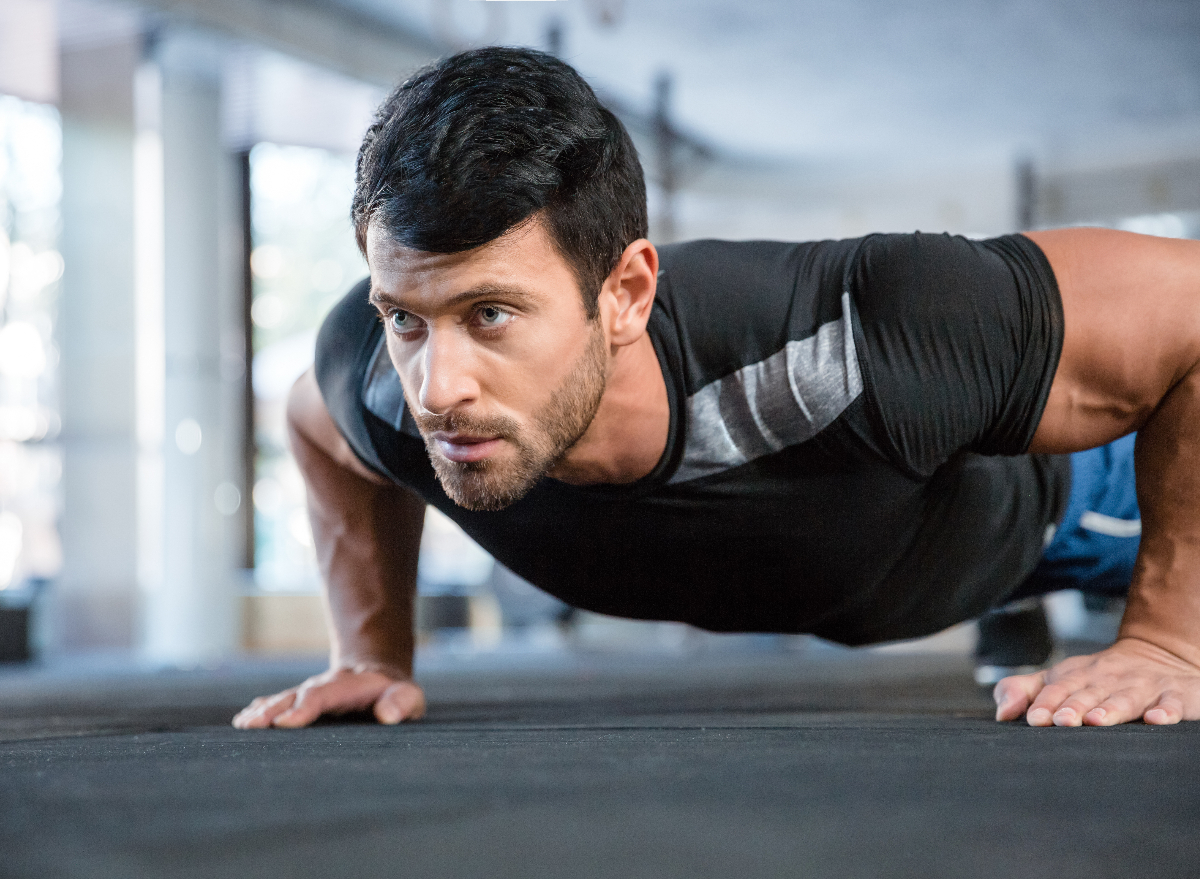
If you've been out of the gym for a while or have yet to begin your fitness journey, you might be wondering where you stand in terms of your current strength level. For those of you who are new to fitness, testing a one-repetition strength maximum on traditional lifts like the squat, bench press, or deadlift is not a safe or good plan for getting your baseline. Instead, I prefer to begin with strength-endurance tests that use bodyweight exercises to gauge your current muscular strength in the different areas of your body. I've put together the ultimate strength workout to test how fit you are, so gear up to find out your results.
Performing tests of this nature gives you or your trainer a good chance to observe your movement patterns and see if you are unstable on the foundational pushing, pulling, lunging, and squatting movements. If this seems overwhelming, don't worry. Simply do your best on each exercise test. The point here is to establish a baseline for yourself from which you can measure further improvement. Nobody without prior experience can perform 10+ pull-ups or 20+ squats, so the fact that you are even beginning this journey speaks for itself!
Follow the instructions for each exercise, write down your results, then use the following section of this article to interpret your results and determine what your current strength levels are for these various movements. Keep reading for the ultimate strength workout to test how fit you are, and when you're done, don't miss A Trainer's Favorite Workout Will Test How Fit You Really Are.
The Comprehensive Body Strength Test
This strength workout is designed to engage all major muscle groups: upper body, lower body, and core. It aims to help you determine your level of physical fitness and gauge your muscle strength and endurance. It includes pushups, squats, plank, pull-ups, and walking lunges.
1. Pushups

First up on this list of strength exercises to test how fit you are is the pushup. Pushups reveal the strength and endurance of your chest, shoulders, triceps, and core. To start, perform as many pushups as you can with proper form. Your body should be in a straight line from your head to your heels, and your chest should touch the ground on each rep. Record your maximum number. If a full pushup is too challenging, try a modified version on your knees or against a wall.
2. Squats
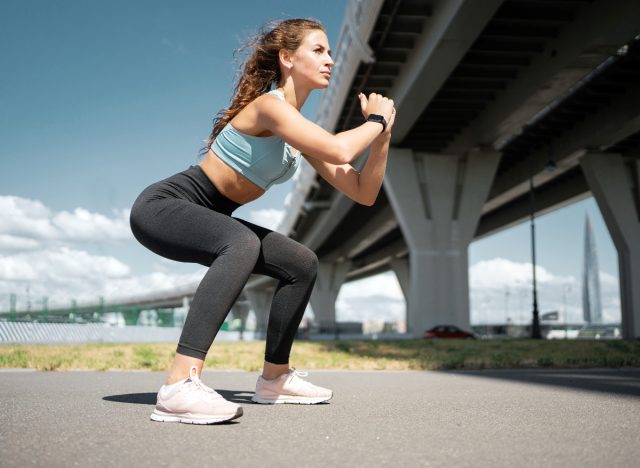
Squats are excellent for assessing lower-body strength and endurance, primarily targeting your quadriceps, hamstrings, glutes, and core. Stand with your feet shoulder-width apart, and perform as many squats as you can, going as low as you can while keeping your back straight. Keep count of your maximum number of reps. Work to prevent your knees from caving inward or your torso from leaning too far forward on each repetition.
3. Planks
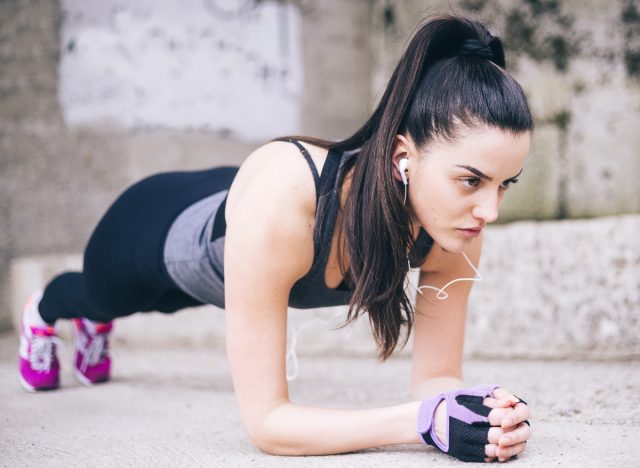
The plank is a reliable test for your core strength and endurance. Assume a pushup position, but rest on your forearms instead of your hands. Your body should form a straight line from your shoulders to your ankles. Hold this position for as long as you can, noting the total time before your form breaks.
4. Pull-ups
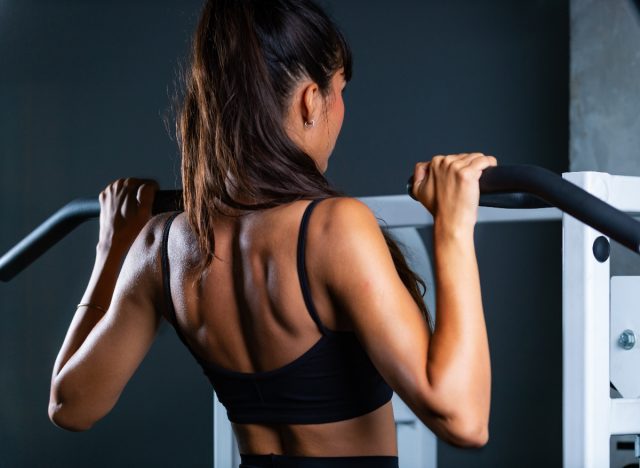
Pull-ups are a measure of upper-body and core strength. To start, find a pull-up bar or any sturdy, horizontal bar that can safely hold your weight. Grasp the bar with your palms facing away from you, hands slightly wider than shoulder-width apart. Hanging onto the bar, pull yourself up until your chin clears the bar, then lower yourself back down in a controlled motion. Repeat as many times as you can, keeping count of your maximum number of reps. Work to avoid shrugging your shoulders or swinging your body as you perform each repetition for the safety and accuracy of the test.
If you find traditional pull-ups are too difficult at first, you can try assisted pull-ups with a band, or do inverted rows or lat pull-downs as an alternative.
5. Walking Lunges
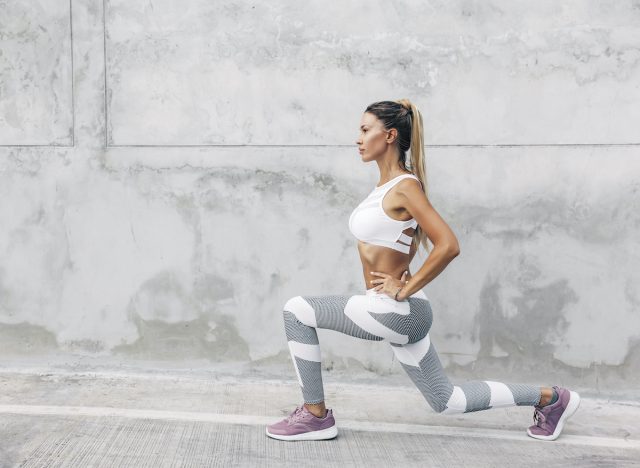
This workout to test how fit you are wraps up with walking lunges. This exercise tests the strength and stability of your lower body, including your quadriceps, glutes, and hamstrings. Perform as many walking lunges as you can in 60 seconds while maintaining proper form: Keep your torso upright, and don't let your front knee cave inward as you step and lower. Count the number of reps for each leg.
Interpreting Your Results
Pushups: A good target for men is 20+ reps, and for women, 10+ reps. If you're unable to hit these targets, there's room for improvement in your upper-body strength.
Squats: A healthy range for most adults is 20 to 30 consecutive squats. Anything below this may indicate a need for improving lower-body strength.
Planks: Holding a plank for one or more minutes is considered good. If you fall short of this, it might suggest you need to enhance your core strength and stability.
Pull-ups: A good target for men is five or more reps, while for women, one or more reps is commendable, due to the generally higher body mass to strength ratio. If you're unable to hit these targets, there's room for improvement in your upper-body and core strength. Remember, even if you can't do a single pull-up yet, don't get discouraged. This exercise is notoriously challenging—especially for beginners—but with consistent practice, you'll see progress over time.
Walking Lunges: Completing 15+ reps per leg is a reasonable goal for most adults. Anything less indicates a lack of lower-body strength and stability.









